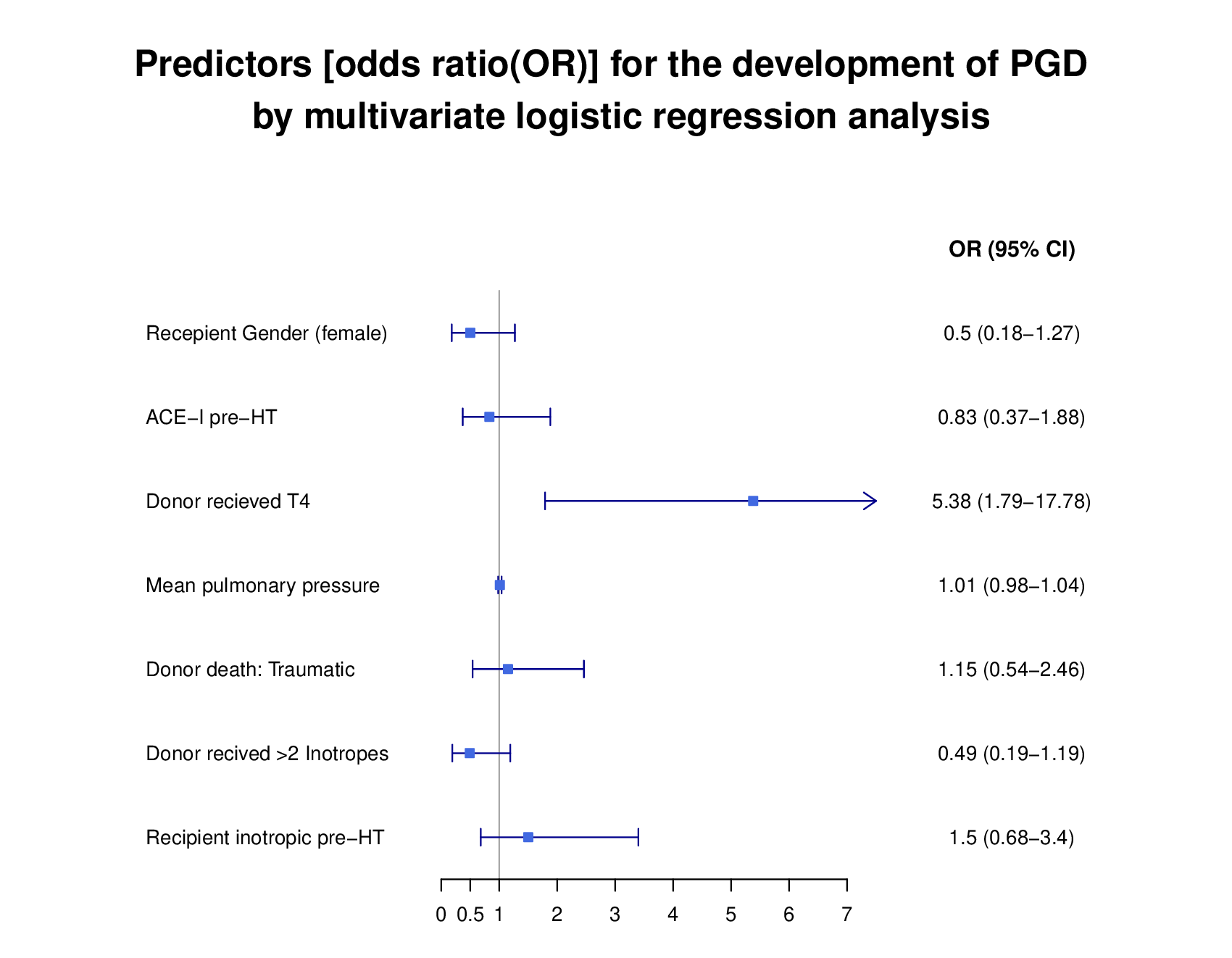
Donor Hormonal Thyroid Therapy is Associated with Increased Risk of Primary Graft Dysfunction after Heart Transplantation
Purpose: Heart transplantation (HT) is uniquely associated with potential hormonal thyroid therapy implications, viz.: (1) Cardiac surgery is associated with a reduction in T3 levels (2) Administration of T3/T4 to the brain-dead organ donor is associated with increased recovery of transplantable hearts (3) Thyroid hormones directly influence myocardial function, having positive inotropic and chronotropic effects, which are modified in the transplanted heart. We aimed to study the effect of hormonal thyroid therapy to the donor on primary graft dysfunction (PGD).
Methods: The 209 HT patients assessed from 1992 to 2018 were divided into 2 groups, depending on whether their donors had received T4 (n = 33) or not (n = 176). The primary endpoint was PGD defined according to the ISHLT consensus statement.
Results: Group of recipients from T4 treated donors was characterized by lower pulmonary pressure (30±11 vs 36±14 mmHg, p = 0.03) lower ACEI therapy (48 vs 72%, p=0.018) and higher female gender (36 vs 14%, p=0.005). There were no other significant differences in donors clinical or echocardiographic parameters between the two groups.
Incidence of PGD was significantly higher in recipients from donors who received T4 compared with recipients from donors who did not receive T4 (58 vs 35%, p=0.022). Severity of PGD was significantly higher in patients whose donors received T4 (43 vs 25% moderate/severe, p=0.007). Multivariate analysis showed that donor T4 therapy was independently associated with a significant >5-fold increased risk for PGD (OR=5.38, 95%CI 1.79-17.78; Fig). These results remained consistent after propensity score analysis.
Conclusion: Donor hormonal thyroid therapy is independently associated with increased risk of PGD. Hypothesizing a “withdrawal effect” as the cause, administration of thyroid hormonal therapy to the recipient at time of reperfusion may oppose this negative effect. Further prospective studies are needed to validate this hypothesis-generating study.

Powered by Eventact EMS